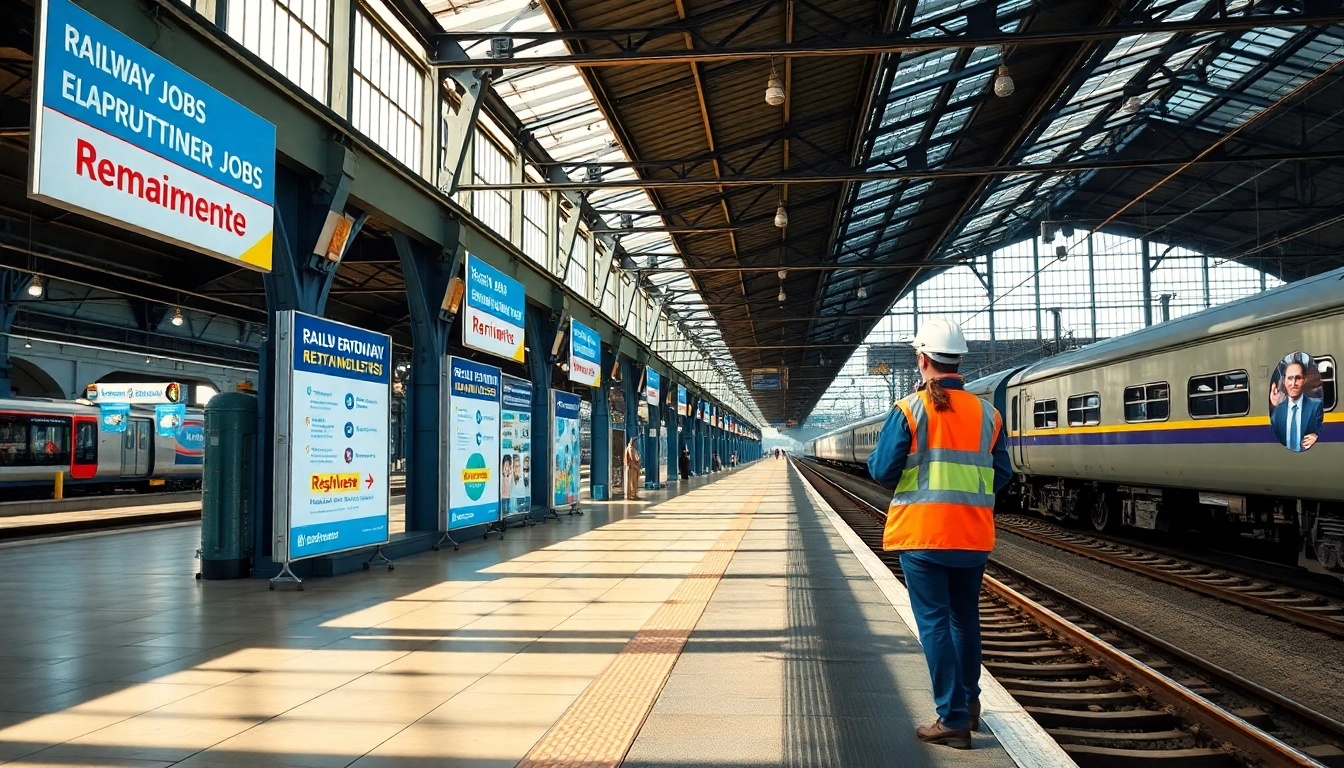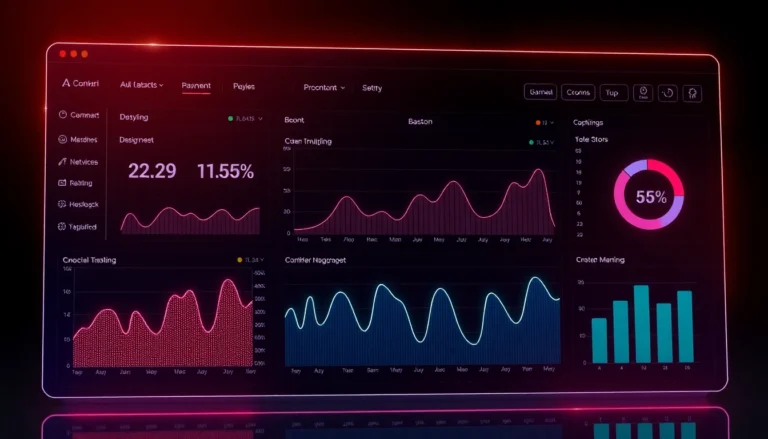
Comprehensive Guide to Railway Jobs in 2025: Unlocking Opportunities and Success Strategies
As one of the largest employers in India, Railway Jobs continue to attract ambitious candidates seeking stable and reputed government positions. The year 2025 promises a substantial number of railway recruitment drives, offering diverse roles across zones and departments. Understanding the latest trends, application processes, exam patterns, and effective preparation strategies is crucial for aspirants aiming to secure their dream railway job and build a long-term career.
Understanding Railway Recruitment Trends in 2025
The railway sector has consistently been a preferred choice due to its excellent job stability, attractive salary structures, and wide-ranging benefits. In 2025, the Indian Railways is expected to announce recruitment notifications for thousands of posts, including Group C and Group D categories, technical and non-technical roles, and specialized positions like loco pilots and station masters. The recruitment pattern is becoming more transparent, with multi-stage exams, online application processes, and clear guidelines aligned with government standards.
Moreover, the advent of digitization is transforming recruitment procedures by incorporating computer-based tests and online application systems, making the process more accessible and efficient for candidates nationwide. This shift aligns with the government’s vision to modernize infrastructure, streamline hiring, and attract a diverse pool of talent.
Main Railway Job Categories
Railway jobs are broadly categorized based on the nature of responsibilities, required skills, and qualifications:
- Technical Posts: Including Junior Engineer, Senior Engineer, DMS (Diploma in Mechanical Engineering), and Loco Pilot. These positions require technical expertise, often gained through diploma or engineering degrees.
- Non-Technical Posts: Such as Station Master, Ticket Collector, Commercial clerk, and Goods Guard, which primarily need administrative and communication skills.
- Maintenance Posts: Cover roles like Track Maintainer, Signal Maintainer, Electrical and Mechanical Technicians, essential for the smooth operation of railway infrastructure.
- Safety and Security: Railways also recruits for roles like Railway Protection Force (RPF) constables, maintaining safety and security on trains and stations.
This diversified framework allows candidates from varied academic backgrounds to find suitable opportunities, reinforcing railways’ stature as a comprehensive employment solution in the public sector.
Key Benefits of Working in Railways
Choosing a railway job in 2025 comes with multiple compelling advantages:
- Job Security: Railway jobs are highly stable, shielding employees from economic fluctuations or private sector layoffs.
- Attractive Salary and Allowances: Based on the 7th Pay Commission, salaries are competitive, supplemented by allowances like House Rent Allowance (HRA), Dearness Allowance (DA), and travel concessions.
- Facilities and Perks: Employees enjoy benefits such as subsidized rail travel for themselves and family, medical facilities, and staff housing.
- Regular Promotions and Career Growth: Clear seniority-based promotion paths ensure steady career progression with increased benefits and responsibilities.
- Work Environment and Cultural Diversity: The railway environment fosters teamwork, discipline, and multicultural interaction, enriching professional and personal growth.
- Long-term Stability and Pension: Government pension schemes and post-retirement benefits provide financial security after service completion.
These benefits, combined with the prestige associated with railway employment, make it an unsurpassed career choice in the modern Indian government sector landscape.
Applying for Railway Jobs in 2025: Procedures and Tips
Latest Application Procedures and Requirements
In 2025, the application process for railway jobs is predominantly online. Candidates must visit the official Railway Recruitment Boards (RRBs) or Indian Railways’ employment portals to register and submit applications. Essential documents include educational certificates, identity proof, passport-sized photographs, and relevant eligibility proofs. Familiarity with the online portal, accurate filling of information, and timely submission are critical for success.
Important Dates and Admission Cycles
Railway recruitment notifications are typically released in the first half of the year, with exam dates scheduled around 3-4 months later. Candidates should monitor official websites and eGovJob.com for alerts. Typically, the process involves:
- Notification release
- Online application filling
- Admit card download
- Online written examination
- Skill/aptitude test (if applicable)
- Document verification and final selection
Preparing Your Application Effectively
To ensure a smooth application process, candidates should keep digital copies of all documents ready, verify eligibility criteria meticulously, and adhere strictly to the deadlines. Filling detailed information correctly reduces rejection risk. Additionally, preparing a checklist of mandatory items ensures completeness, preventing glitches during submission.
Exam Patterns and Syllabus for Railway Recruitment
Common Topics Covered in Railway Exams
The typical railway exam comprises multiple-choice questions (MCQs) covering:
- General Awareness: Current affairs, history, geography, and Indian railways history.
- Mathematics: Arithmetic, algebra, geometry, and basic numeracy skills.
- General Intelligence & Reasoning: Puzzles, analogies, coding-decoding, and logical reasoning.
- Technical Subjects (for relevant posts): Topics based on the specific engineering or technical discipline required.
Study Strategies for Railway Job Exams
Success depends on structured preparation:
- Understand the detailed syllabus published by RRBs.
- Focus on strengthening weaker areas via targeted practice.
- Regularly revise current affairs and general knowledge.
- Practice previous year question papers and mock tests under exam-like conditions to improve accuracy and time management.
Mock Tests and Practice Resources
Numerous online platforms and eBooks offer mock tests tailored for railway exams, including platforms like eGovJob.com, which provides updated mock test links and practice papers. These resources simulate real exam environments, helping candidates build confidence and refine their answering strategies.
Tips for Cracking Railway Job Exams in 2025
Effective Study Planning
Develop a realistic timetable balancing all subjects, allocate time for revision and mock tests, and stay consistent with daily studies. Use study materials aligned with the latest exam pattern, and keep abreast of current affairs through daily news analysis.
Vital Tips to Crack Railway Exams
- Focus on accuracy rather than speed initially, then improve over time.
- Practice time-bound question-solving to meet exam deadlines.
- Stay calm and composed during the examination; avoid rushing through questions.
- Regular revision and self-assessment help track progress and identify areas needing improvement.
Common Mistakes to Avoid During Preparation
- Ignoring the official syllabus and pattern—stick to the prescribed topics.
- Overloading with unnecessary study materials—use trusted sources.
- Neglecting current affairs or general awareness.
- Skipping mock tests which are crucial for exam readiness and confidence building.
Salary, Benefits, and Career Growth in Railway Jobs
Understanding Salary Structures and Allowances
As per 2025 standards, railway salaries are aligned with the 7th Pay Commission. Entry-level positions like ticket collectors or technical assistants start with a basic pay of approximately ₹35,000 per month, with many allowances that can increase gross earnings by 30-50%. Senior roles like Senior Section Engineers or Railway Managers have attractive pay scales with added benefits.
Long-term Career Opportunities in Railways
Railway employees can progress through seniority-based promotions, lateral transfers, and specialized training programs, ultimately reaching managerial and administrative positions. Many employees choose to specialize further in fields like signal engineering, safety, or logistics to enhance their career trajectory.
Employee Benefits and Work Environment
Besides salary, employees enjoy travel concessions, health insurance, housing facilities, and pension schemes. The work environment emphasizes discipline and safety, promoting teamwork and skill development. These factors contribute significantly to job satisfaction and long-term stability.



